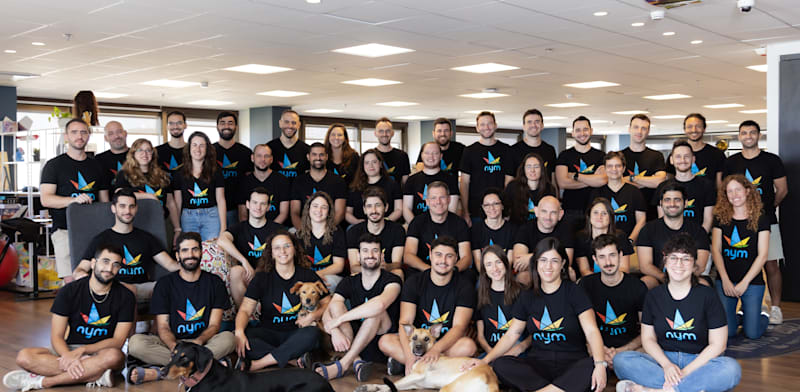In today’s competitive business landscape, effective human resource management has become a strategic necessity rather than just an administrative function. Yet for many growing companies, maintaining a full in-house HR department isn’t always feasible or cost-effective. This is where HR as a Service (HRaaS) offers a compelling solution, providing flexible access to HR expertise without the overhead of a traditional department.
The Evolution of HR Outsourcing
Human Resources outsourcing has transformed dramatically over the past decade. What began as simple payroll processing has evolved into comprehensive service models that cover everything from talent acquisition to compliance management. According to a recent study by Deloitte, 84% of companies now outsource at least some HR functions, with small and medium-sized businesses leading this trend.
The modern HRaaS model differs from traditional HR outsourcing by offering more integration, technology-enabled solutions, and strategic guidance. Rather than merely handling administrative tasks, today’s HRaaS providers function as true business partners, helping organizations align their people strategies with broader business objectives.
Core Components of HR as a Service
A comprehensive HRaaS offering typically includes several key components:
Recruitment and Talent Acquisition
Finding the right talent remains one of the most challenging aspects of business growth. HRaaS providers bring specialized expertise to the recruitment process, from crafting compelling job descriptions to screening candidates and conducting preliminary interviews. This focused approach can reduce time-to-hire by up to 30% and improve candidate quality significantly.
Compliance Management
Navigating the complex landscape of employment laws and regulations presents a significant challenge, especially for companies operating across multiple jurisdictions. HRaaS partners stay current with changing regulations and ensure your policies and practices remain compliant. This proactive approach helps mitigate legal risks and avoid costly penalties—a critical consideration when 42% of small businesses report spending at least $10,000 handling employment-related legal issues.
Performance Management
Establishing effective performance management systems is essential for organizational growth. HRaaS providers implement structured review processes, set meaningful KPIs, and develop feedback mechanisms that drive employee development. Companies with strong performance management systems are 30% more likely to outperform their competitors in financial outcomes.
Employee Development and Training
Professional development opportunities rank among the top factors in employee retention. HRaaS solutions include creating tailored training programs, identifying skill gaps, and developing learning pathways that align with both individual career aspirations and organizational needs. Organizations investing in employee development report 24% higher profit margins and 218% higher income per employee.
Payroll Administration
Accurate and timely payroll processing remains fundamental to employee satisfaction. HRaaS providers ensure proper tax withholding, benefit deductions, and compliance with wage laws. Additionally, they provide valuable reporting and analytics that offer insights into compensation patterns and help control labor costs.
Benefits of the HRaaS Model
The shift toward HR as a Service offers several compelling advantages for growing businesses:
Cost Efficiency
Maintaining an in-house HR department requires significant investment in salaries, benefits, training, and technology. The HRaaS model converts these fixed costs into variable expenses that scale with your business needs. Studies indicate that companies adopting HRaaS solutions typically realize cost savings of 20-30% compared to equivalent in-house functions.
Access to Specialized Expertise
HRaaS providers offer access to specialists across various HR disciplines—from recruitment experts to compliance officers and compensation analysts. This breadth of expertise would be prohibitively expensive to maintain in-house for most organizations. A recent survey found that 67% of businesses cite access to specialized knowledge as their primary reason for adopting HRaaS solutions.
Scalability
As your business grows or experiences seasonal fluctuations, your HR needs will change accordingly. The HRaaS model provides built-in scalability, allowing you to adjust service levels without the challenges of hiring or downsizing an internal team. This flexibility proves particularly valuable for startups and high-growth companies in unpredictable market conditions.
Technology Leverage
Modern HRaaS providers invest heavily in HR technology platforms that many small and medium-sized businesses couldn’t afford independently. These systems streamline workflows, improve data accuracy, and provide valuable analytics. By leveraging these platforms, organizations gain enterprise-level HR capabilities without the associated technology investment.
Strategic Focus
By delegating administrative HR functions to external experts, your leadership team can focus more on strategic initiatives that drive growth. According to research from PwC, companies that successfully outsource routine HR functions free up to 40% more time for strategic activities.
Is HRaaS Right for Your Organization?
While HR as a Service offers numerous benefits, it’s not a universal solution for every organization. Consider these factors when evaluating whether HRaaS aligns with your needs:
- Company Size and Growth Stage: HRaaS often provides the greatest value for companies with 20-500 employees—large enough to need formal HR functions but not necessarily requiring a full in-house department.
- Geographic Footprint: Organizations operating across multiple locations or jurisdictions can benefit significantly from HRaaS providers with expertise in various regulatory environments.
- Industry-Specific Requirements: Some sectors have unique HR challenges and compliance considerations that require specialized knowledge.
- Cultural Considerations: Evaluate how well a potential HRaaS partner understands and can support your organizational culture and values.
Implementing HRaaS Successfully
For organizations transitioning to an HRaaS model, these best practices can help ensure a successful implementation:
- Start with a Clear Assessment: Identify your specific HR needs, pain points, and objectives before engaging providers.
- Establish Clear Performance Metrics: Define how you’ll measure the success of your HRaaS partnership through specific KPIs.
- Ensure Strong Communication Channels: Effective collaboration requires open and regular communication between your team and the HRaaS provider.
- Plan for Knowledge Transfer: Develop a structured process for sharing organizational knowledge with your HRaaS partner.
- Consider a Phased Approach: Rather than outsourcing all HR functions simultaneously, consider beginning with specific areas of greatest need or potential impact.
The Future of HR as a Service
The HRaaS model continues to evolve, with several emerging trends shaping its future development:
- AI and Automation: Increasing integration of artificial intelligence for tasks like candidate screening, employee onboarding, and predictive analytics.
- Employee Experience Focus: Greater emphasis on designing comprehensive employee experiences rather than managing isolated HR transactions.
- Data-Driven Decision Making: Advanced analytics providing deeper insights into workforce trends, engagement factors, and performance drivers.
- Remote Work Support: Specialized services addressing the unique challenges of managing distributed teams and hybrid work models.
As these trends accelerate, HRaaS providers will increasingly function as strategic partners in organizational transformation, helping businesses build agile, resilient workforces ready to meet future challenges.
For growing businesses seeking to optimize their human resource management while focusing on core operations, HR as a Service represents a powerful solution—combining flexibility, expertise, and cost-effectiveness in a model designed for today’s dynamic business environment.





